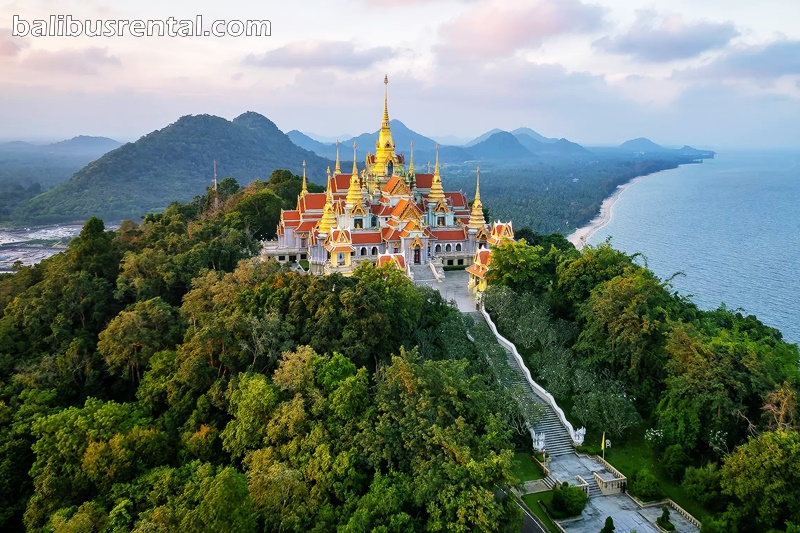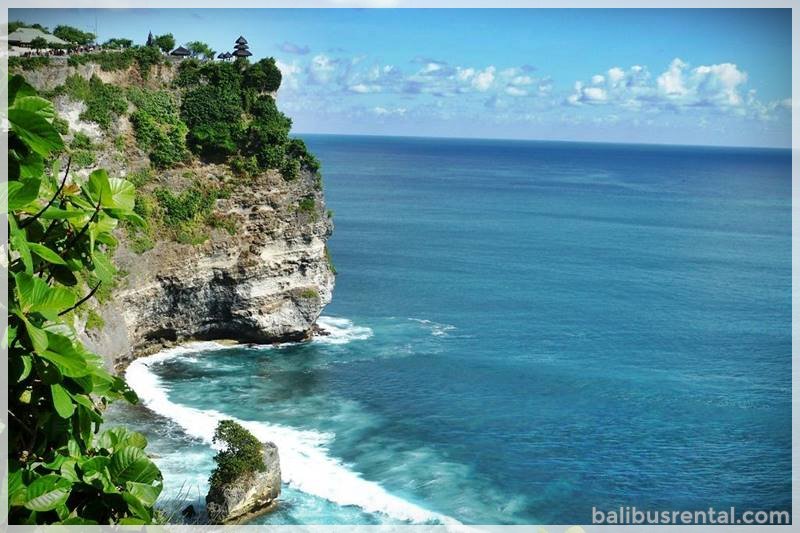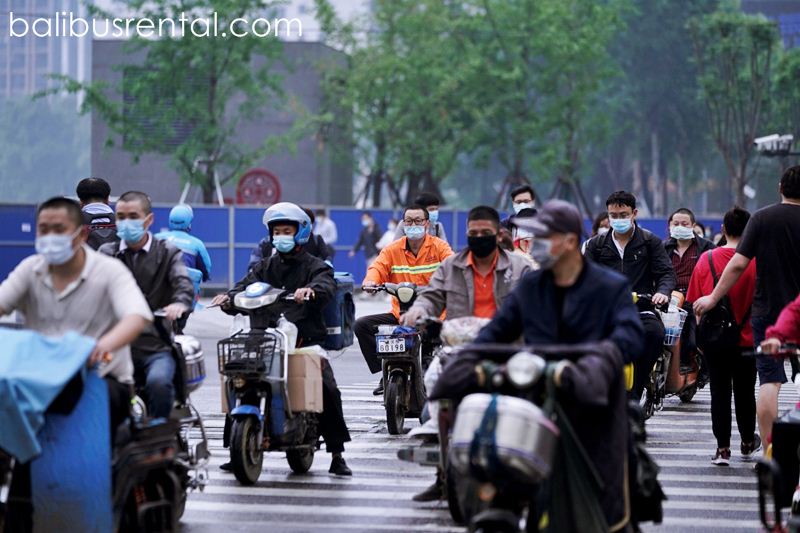Wednesday | May 28, 2025
Bangkok – It’s a typical Wednesday afternoon in the heart of Bangkok, and Daniel Fraser is buzzing with excitement.
The Canadian entrepreneur has just returned from a scouting trip to neighboring Laos, where he stumbled upon an unexpected discovery: an abandoned factory filled with relics from a bygone era — Soviet-era military trucks, munitions crates, and equipment that echo Laos’ strategic importance during the Vietnam War and the broader Cold War.
But Fraser isn’t sourcing locations for a war film or a gritty TV series. He sees something else entirely — a unique venue for an unforgettable lunch experience, custom-designed for an ultra-high-net-worth client traveling with his company, Smiling Albino.
At first glance, the idea might raise eyebrows. Why take a wealthy traveler to dine in a dusty, forgotten industrial site, when Southeast Asia — including Laos — boasts some of the world’s finest luxury resorts and restaurants?
But Fraser says that’s exactly the point.
“When you’re working with the world’s most elite travelers, the experience has to go far beyond the usual five-star standards,” he explains. “Our goal is to create something so unique, so immersive, that it couldn’t be replicated anywhere else — not even by someone else in the same region.”
In Fraser’s world, creativity is currency. He notes that many of his clients have the means to fly in global DJs or close entire theme parks for private use. But that’s not what Smiling Albino is offering.
“These people can — and do — do that anywhere,” he says. “What we offer are rare, soul-deep experiences grounded in culture, connection, and setting.”
That’s why Fraser is so captivated by the derelict factory in rural Laos. It’s just one piece of a larger journey he’s designing — and, surprisingly, one of the simpler ones.
Another part of the itinerary includes a visit to Kong Lo Cave, a stunning geological marvel with a seven-kilometer underground river. But there’s a catch: the client isn’t going to spend hours jostling down dusty back roads to reach it.
“Our plan is to helicopter the group to one side of the cave,” Fraser says. “From there, they’ll paddle through with villagers wearing headlamps, take part in a spirit ceremony honoring the local community and the cave itself, then emerge on the other side to be picked up again by helicopter. From there, we’ll take them to a charming guesthouse for a locally prepared lunch.”
Pulling off this kind of experience isn’t simple. It takes months of preparation, and approval from multiple government ministries — nothing moves fast when the logistics are this complex.
“We’re talking about James Bond-level adventures with biblical-level logistics,” says Fraser. “Each element — from transport to ceremony to cuisine — needs to come together like a one-day Hollywood production within a five-day itinerary. And everything must respect and celebrate the local community.”
Fraser’s flair for immersive, high-stakes travel planning even caught the attention of HBO Max. He reveals that during early development of season three of The White Lotus, set in Thailand, he was invited to take series creator Mike White on a Bangkok adventure to help inspire the setting.
Though he’s careful not to name names for privacy reasons, Fraser shares that his client list includes tech billionaires, Grammy-winning artists, Oscar-nominated actors, and elite athletes — household names who come to Southeast Asia not for fanfare, but for authenticity.
‘We decided that night we’re going to quit our jobs’
Daniel Fraser’s journey with Thailand began in 1995, when he first set foot in the country as a 21-year-old college student from Texas. Thanks to a placement arranged by his liberal arts college, Fraser found himself teaching English and speech at Bangkok’s prestigious Chitralada Palace School — an experience he now calls “the most unusual year you could ever imagine at that age.”
Unlike most young expats who spent their downtime island-hopping or partying with fellow backpackers, Fraser immersed himself in local life. He found himself surrounded by well-connected Thais and gaining access to a side of the country most tourists never glimpse. It wasn’t the typical introduction to Thailand — and that’s exactly what made it unforgettable.
“I knew I wanted to come back someday,” he says.
That moment came just four years later. It was 1999, and Fraser was back in Canada, working in marketing in chilly Calgary, Alberta. Autumn had arrived, and with it, the looming inevitability of another long winter. Fraser and his close friend, Scott Coates, both felt the itch for something more.
“We had been daring each other to do something bold — to take the leap and start a business,” Fraser recalls.
One night over beers, they laid down an ultimatum: by the time they finished their drinks, they’d make a decision. But as the bottom of their glasses came into view, hesitation remained — until Coates ordered a round of Jägermeister.
“That one shot of Jäger — not exactly known for inspiring sound decisions — sealed the deal,” Fraser laughs. “We decided that night to quit our jobs. A few weeks later, we were on a flight to Thailand.”
The idea was inspired by Fraser’s earlier teaching stint. Rather than cater to the mainstream tourist crowd, they wanted to build a company for travelers seeking a deeper connection — “a travel company that fast-tracked people into the life and soul of a country.”
But launching a business in Southeast Asia in the late ’90s was anything but straightforward. There were no how-to blogs, no Google Maps, no translation apps — and no playbook.
To complicate matters further, Fraser and Coates had zero experience in the travel industry.
“It’s funny now, but we really had no clue,” Fraser says. “We showed up in Thailand with backpacks, a couple thousand dollars, and this dream of starting a world-class travel company.”
The reality hit quickly. “We left Calgary with a big send-off at the airport — people cheering us on. Then we arrived in Bangkok and thought, ‘Okay, what are we actually doing?’ We had no idea.”
Still, against the odds, Smiling Albino was born — a name inspired by the sacred status of albino elephants in Southeast Asia, symbols of rarity, legacy, and reverence.
From those humble beginnings, Fraser and Coates built a company known for curating high-touch, deeply immersive travel experiences for the world’s most discerning adventurers — a long way from backpacks and Jäger shots.
‘Can you put us in, you know, a proper hotel?’
Today, Daniel Fraser leads a team of around 40 full-time staff, supported by a network of freelance collaborators spread across Thailand, Cambodia, and Vietnam — all dedicated to crafting bespoke, private journeys throughout the region.
From the beginning, Fraser and co-founder Scott Coates knew they weren’t interested in competing in the budget travel space. But they also never imagined they’d one day be curating trips for some of the world’s wealthiest and most influential people.
“Our mission from day one was to create experiential travel,” Fraser explains.
“We wanted to serve upwardly mobile travelers — people who loved the spontaneity and authenticity of backpacking, but with smart logistics and refined touches. Not cookie-cutter luxury, but something elevated and real.”
They began modestly, running bike tours through Bangkok’s Minburi district, tracing routes along old canals — areas that, even today, remain off most tourists’ radar. Next came scooter tours in northern Thailand’s remote Chiang Rai province, weaving through mountain terrain and visiting small villages along the way.
“We always had a licensed Thai guide with us,” says Fraser. “Those early days were formative. We learned so much from the guides we partnered with, and many of those relationships still thrive today.”
With no marketing budget, their reputation grew the old-fashioned way — through word of mouth, local connections, and the buzz generated by curious travelers who heard about “these two crazy Canadian guys running fun trips in northern Thailand.”
It wasn’t long before a shift began: their clientele started changing.
“We started getting inquiries from people saying, ‘We love the idea of your trip, but we don’t do guesthouses… Could you put us in a proper hotel? Maybe even a four-star?’” Fraser recalls.
At first, they resisted.
“We were a bit stubborn,” he admits. “We saw ourselves as purists — totally counter to mainstream tourism. Looking back, that mindset probably slowed our growth.”
Eventually, they began to adapt — not by changing the soul of the experience, but by tweaking the details. The routes stayed the same, but accommodations and logistics began to evolve with the needs of their growing clientele.
“Before we knew it, we were hosting some serious movers and shakers. One small change here, one upgrade there — suddenly we’re staying at the Four Seasons, and guests are arriving by private jet,” says Fraser.
Yet, despite the luxury trappings, the core experience remained grounded.
“We’ve taken some of the world’s most famous people to eat $1 noodles on the street, drink cold beers on plastic stools, wander through hidden alleyways in Chinatown, and explore softly lit temples after dark. It’s really the same essence we started with 25 years ago — the clients may have changed, but the spirit of the trips hasn’t.”
In 2013, Fraser and Coates parted ways professionally but remain close friends. Today, Smiling Albino is often associated with ultra-high-net-worth clients, but Fraser is quick to clarify that the company’s offerings are broader than people assume.
“People think we only do seven-figure adventures, but we still run $200 day trips. Not every experience is an elaborate production.”
The key to their success, Fraser says, lies in a few core principles. Every journey must be unduplicable — not something anyone can Google. It must also be genuinely engaging, rooted in local culture, and designed with care.
That philosophy created space for expansion.
“Eventually, people began asking, ‘Can you do this in Nepal? In Cambodia? In Vietnam?’ And so, step by step, we built outward.”
With a foundation built on authenticity, adaptability, and trust, Smiling Albino has grown into a regional leader in bespoke travel — still driven by the same passion that began with two friends, a couple of beers, and a single bold decision.
Hosting a TV show … in Thai?
When Fraser first moved to Thailand, he found learning the language essential—not just for daily survival, as he lived far from the usual tourist areas—but also for the success of his business.
“We wanted to prove to ourselves that if we were going to walk the walk, we had to literally talk the talk,” he says.
“So from day one, I made it a priority and actually got really excited about it. I saw language as an incredible door opener.”
In 2011, following a few appearances on television and as an emcee, someone approached him with an idea: a documentary-style travel show in Thai, focused on cultural exploration.
“It was terrifying,” he admits. “I was comfortable ordering food in Thai with friends, but speaking about cultural topics on national TV—on Thai PBS, no less—felt like a huge leap. But it ended up teaching me so much about Thailand that I’d never known.”
Fraser’s deep respect for his adopted home is evident. He’s quick to emphasize that his goal was never to instruct anyone about their own culture.
“I wasn’t qualified to do that, and I think assuming otherwise would be naive. I believe that’s part of why the show resonated with local audiences. People saw it and thought, ‘Here’s a fresh, sincere, and fun take on Thai culture.’”
The show ultimately opened countless doors for him. Through it, he was able to visit hidden temples, attend traditional festivals, explore rural villages, and connect with renowned Thai artists, monks, and politicians.
Impressing the locals
Reflecting on his time in Thailand, Fraser says his greatest challenge didn’t come from a billionaire tech mogul or a Grammy-winning musician. It came during the COVID-19 pandemic.
“That was the moment we had to completely reinvent ourselves—to keep the business alive, to keep the dream alive,” he says.
His mission? To impress the locals.
“We had a group of affluent Thais who, during the pandemic, couldn’t travel internationally. They came to us and said, ‘Show us our own country. We hear you’re creative.’ That was incredibly intimidating,” he recalls.
Rising to the challenge, Fraser and his team crafted a unique journey through northern Thailand—off-the-beaten-path destinations with little in the way of conventional luxury, but rich in authentic, local experiences. The centerpiece was a surprise: a curated train party unlike anything his guests had seen.
“We retrofitted and decorated a couple of luxury train cars in a 1920s Gatsby theme and attached them to a regularly scheduled train,” he explains. “There were seven stations, and at each stop, different performers would get on and off.”
The logistics, he says, were “space-age in their precision.” But the goal was simple: to blow people’s minds.
“We wanted them to experience their own country in a way they never, ever imagined possible.”
Tired of the crowds? You don’t need to be a billionaire
In the post-Covid era, as overtourism continues to overwhelm many of the world’s most popular destinations, Fraser’s mission to offer exciting, lesser-known alternatives feels more relevant than ever.
But he’s quick to point out that crafting a unique travel experience doesn’t require a limitless budget.
Take Thailand, for example. Fraser estimates that over 80% of international tourists stick to just six destinations: Bangkok, Chiang Mai, Phuket, Koh Samui, Pattaya, and Hua Hin—leaving much of the country untouched and waiting to be explored.
“Our goal is to nudge people just an inch off the map,” he says. “To encourage them to see parts of Southeast Asia in a way that’s truly their own—something no one else has done.”
And that desire, he adds, isn’t reserved for luxury travelers.
“It’s the same whether you’re a backpacker or a billionaire. Everyone’s chasing authentic experiences.”




